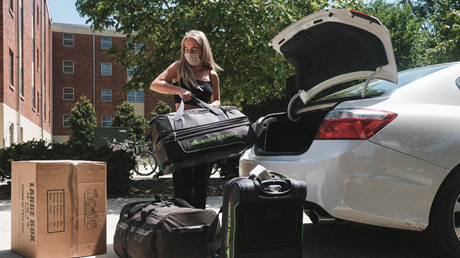Enrollment numbers, financial challenges, and the pandemic spelled the end.

Iowa Wesleyan University freshman Emma Soukup started crying when she heard the news that her school, a 181-year-old United Methodist institution, would close at the end of this semester.
She told the Des Moines Register it felt like a tornado devastated her home. She called her dad. “I don’t know what to do,” she told him.
She is not the only one.
A new study from Higher Ed Dive found three dozen colleges and universities have closed or merged since the start of the COVID-19 pandemic. Eighteen of them are Christian, including Methodist, Lutheran, Roman Catholic, Baptist, Church of Christ, and Independent Christian Church institutions. One minute they were there—seemingly as solid as the buildings, invested with the mission of integrating faith and learning, full of students’ hopes and ambitions—and then they were gone.
The schools were all small and struggling before COVID-19. They faced devastating demographic shifts, declining enrollment, internal conflict exacerbated by ongoing crises, and, most of all, unrelenting financial challenges. Some would have certainly closed even without a global health crisis. For others, the coronavirus was the last stiff breeze that blew them over the edge.
“Small institutions are resilient or they wouldn’t still be in existence,” said David Fincher, head of Central Christian College of the Bible, which absorbed St. Louis Christian College in 2022. “At the end of the day, though, there’s only so much resiliency gets you when there’s a perfect storm.”
In Michigan’s Upper Peninsula, a mainline Lutheran university saw the storm rising in high school statistics. Fewer and fewer students attended the region’s ...
from Christianity Today Magazine
Umn ministry


.gif)

.gif)
.gif)
